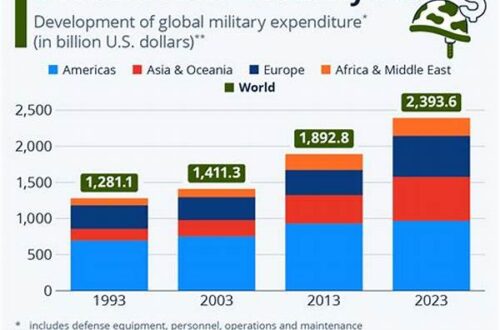In the realm of global business, cross-cultural negotiation has emerged as a pivotal aspect requiring adept skills and profound understanding. Language, as a fundamental mode of communication, often introduces a series of complexities that can adversely impact negotiating outcomes. This article examines the multifaceted language challenges in cross-cultural negotiation, addressing the intricacies that arise when language barriers intersect with cultural differences.
The Nuances of Linguistic Differences in Negotiation
Language challenges in cross-cultural negotiation extend beyond mere translation issues. Negotiators must navigate the subtleties of meaning, tone, and intent, which can vary significantly between languages. In a negotiation setting, misunderstanding even a single word could alter the perceived willingness to cooperate, urgency, or values placed on terms. For instance, certain phrases may carry implications in one language that are non-existent or diametrically opposed in another. These discrepancies necessitate that negotiators are not only proficient in multiple languages but are also culturally aware and sensitive to the linguistic nuances.
Furthermore, the dynamic of a negotiation can be affected by the non-verbal cues accompanying spoken language. Body language and gestures differ across cultures and can either complement or conflict with the verbal message. Negotiators must hold a keen awareness of these expressions to mitigate misunderstandings. Misaligned interpretations of silence and pauses could also be misconstrued, either as offensive hesitations or diplomatic respect, depending on cultural norms. Addressing language challenges in cross-cultural negotiation requires a holistic approach encompassing both verbal and non-verbal communication elements, enhancing mutual understanding and fostering successful outcomes.
Overcoming Language Barriers: Strategies and Approaches
1. Cultivating cultural intelligence is crucial in addressing language challenges in cross-cultural negotiation. This entails understanding the cultural context behind language use and its impact on negotiation dynamics.
2. Employing professional interpreters can significantly mitigate language challenges in cross-cultural negotiation. Skilled interpreters ensure accurate translation and cultural appropriateness, bridging communication gaps effectively.
3. Adopting simplified language can prevent potential misinterpretations. Using clear and direct expressions helps minimize the language challenges in cross-cultural negotiation by reducing ambiguity.
4. Engaging in active listening facilitates better comprehension, mitigating language challenges in cross-cultural negotiation. This involves attentively interpreting spoken words and the underlying cultural context.
5. Training negotiators in intercultural competency equips them to navigate language challenges in cross-cultural negotiation. Such training enhances their ability to understand diverse communication styles and cultural nuances.
The Role of Cultural Sensitivity in Language Interpretation
Language challenges in cross-cultural negotiation often stem from an inadequate grasp of cultural sensitivities. Interpreting language without acknowledging the cultural backdrop can lead to misinterpretations and potential conflicts. Cultural sensitivity necessitates that negotiators acquaint themselves with the traditions, social norms, and etiquette that influence collaborative interactions. It is essential for negotiators to adapt their communication strategies to respect cultural differences, ensuring that their language use aligns with the cultural expectations of all parties involved.
Moreover, fostering an environment of cultural respect and inclusivity can alleviate the tension that arises from language challenges in cross-cultural negotiation. By demonstrating a willingness to comprehend and embrace diverse cultural perspectives, negotiators not only build trust but also lay the groundwork for fruitful collaboration. This commitment to cultural sensitivity must be pervasive, influencing the entirety of the negotiation process, from preparation through to execution and follow-ups.
Enhancing Negotiation Outcomes through Multilingual Competence
The mastery of multiple languages can provide a significant advantage in overcoming language challenges in cross-cultural negotiation. Negotiators possessing multilingual competence are better equipped to bridge language gaps, effectively addressing subtleties that may otherwise be overlooked. This proficiency enables a deeper understanding of the partner’s intent, fostering clearer communication and reducing the likelihood of misunderstandings. In practice, multilingual competence empowers negotiators to partake in more equitable dialogue, promoting fairer and more inclusive negotiation outcomes.
Language challenges in cross-cultural negotiation also underscore the necessity of patience and adaptability. Developing negotiation strategies that are flexible enough to accommodate communication hurdles ensures more resilient and adaptable negotiation processes. With multilingual competence as a foundational skill, negotiators can approach cross-cultural interactions with increased confidence and precision, ultimately contributing to more successful negotiation results.
Building Trust in Cross-Cultural Communication
Establishing trust is a fundamental step in overcoming language challenges in cross-cultural negotiation. Trust forms the basis of any successful partnership, facilitating open communication and mutual respect. By demonstrating a commitment to understanding language challenges and making genuine efforts to overcome them, negotiators can cultivate trust. This involves not only linguistic preparedness but also proactively addressing cultural concerns, which plays an instrumental role in nurturing lasting business relationships.
In addition, transparency in communication further strengthens trust. Providing clear and concise information, free from jargon and cultural biases, aligns with the needs of all parties involved. Negotiators who respect these principles are more likely to achieve productive outcomes and maintain cohesive partnerships. Explicitly acknowledging the potential for language challenges in cross-cultural negotiation, followed by actions to mitigate them, reinforces trust and positions all parties for collaborative success.
Conclusion
In summary, language challenges in cross-cultural negotiation present a complex array of issues rooted in linguistic diversity and cultural disparity. Overcoming these challenges requires a concerted effort combining linguistic proficiency, cultural sensitivity, and strategic adaptability. By actively engaging in practices to address these language barriers, negotiators can enhance their ability to navigate cross-cultural settings with efficacy.
Ultimately, the successful navigation of language challenges fosters mutual understanding and productive dialogue, paving the way for harmonious and beneficial negotiations. Emphasizing the acquisition of cultural and linguistic intelligence as integral components of negotiation training can significantly improve cross-cultural communication. Through diligent efforts to understand and bridge language and cultural divides, negotiators can drive positive outcomes and build a more interconnected global business landscape.





